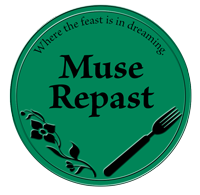Qoheleth Chapter Three
Translation from the Anchor Bible commentary by R.B.Y. Scott:
1 Everything has its season, and there is a proper time for
every happening under the sun–
2 A time to be born and a time to die,
A time to plant and a time to uproot [what has been planted]
3 A time to kill and a time to heal,
A time to wreck and a time to build;
4 A time to weep and a time to laugh,
A time to lament and a time to dance for joy;
5 A time to scatter stones and a time to gather them,
A time to embrace and a time to shun embraces.
6 A time to seek and a time to give up,
A time to keep and a time to throw away;
7 A time to tear apart and a time to sew together,
A time to be silent and a time to speak;
8 A time to love and a time to hate,
A time for war and a time for peace.
9 What does the doer [of these] add by his effort? 10 I see the sore task that God assigns to men to afflict them; 11 [and I see too] that God makes each event right for its time. Yet he has put in their minds an enigma, so that man cannot discover what it is that God has been doing, from beginning to end. 12 I do know that there is nothing better for a man than to be happy and find pleasure in living. 13 Indeed, when a man can eat and drink and find satisfaction in his occupation, he has a gift from God. 14 I know that whatever God does will endure; to it nothing can be added, and from it nothing can be subtracted. God acts, and men must stand in awe of him. 15 That which was, now is; and that which is to be, has already been. God will see to what requires attention.
16 Another thing I observed about man’s life in this world is that where justice should be found, there wickedness is; and where the just man should be, there is an evildoer. 17 I quoted to myself, “God will judge between the just man and the evildoer,” since there is a destined time for every experience and an appointed moment for every deed. 18 Then I said to myself, “It is on men’s account, that God may show [them] that they are only animals. 19 For the fate of men and the fate of animals is the same; as one dies, so dies the other, for all have the same breath of life. Man has no superiority over the beast, for all are a breath that vanishes. 20 All are bound for the same place. All have come from the ground, and all are returning to the ground. 21 Who can be sure that the life of man ascends on high, and the life of beasts goes down to the underworld? 22 So I saw that there is nothing better for a man than to be happy in what he is doing, since that is his lot; for who can enable him to see what will be after him?
—
These words are the most famous part of Qoheleth. Perhaps it is for a good reason, because this is where Qoheleth’s appreciation for the beauty of the world around shines the brightest. The cycles of the world are well-ordered, and God has given attention to everything that needs attending. “God makes each event right for its time” (Verse 11) There is no explicit proclamation of joy about these things, but in the beauty of the poetry one cannot help but hear a sense of awe and respect. And again, it is not of these things or the cycles that brings Qoheleth to despair in conclusion: but instead it is the thought: “What does the doer of these things add by his [or her] effort?” Despair comes in human ability to add to things, to control and to know and to judge. This is quite different from despair in the things themselves. Those are beautiful and well-ordered. It is human efforts are always vain and chasing after the wind. Notice also, the repetitions of the “eat drink and be merry” refrain. That is, there is nothing left for humanity (since their efforts at control are vanity) but to enjoy their lot, and be happy with what has been given them.
If at this point there was any suspicion left that this was a text akin to existentialist dread, then this chapter should defeat it soundly. Instead, chapter three establishes the book of Qoheleth as an extremely Lutheran-sounding text. It despairs of the righteousness of our works, and trusts righteousness only to come from God. For Life is beautiful, and our lot is worth enjoying (for that is all we have). Truly we are still dust and to dust we shall return, but this truth does not lead to despair, it leads to trust in God. For god makes things well in God’s time as God has ordered the cycles and times of the world. Only in God, and not the deeds of humans, is there sureness and hope.
For me to say this is a Lutheran idea is not something I say lightly. I do not mean to read Luther into where Qoheleth is speaking. Qoheleth could never have read Luther, and it would be unfair to expect to find Luther here. On the other hand, Luther surely read Qoheleth, and has written a commentary on it. And Luther’s ideas did not come from a vacuum. My claiming “Lutheran” here is simply showing a similarity between the two ideologies. I do not have any delusions about this being a book written with Luther in mind. Nor do I think that Luther is the only conclusion one should draw from Qoheleth. I mean simply that Qoheleth shares a lot with the Luther that came long after it. Just as there is a time for everything, and there is an ebb and flow to the seasons. So there is an ebb and flow of ideas. One leads to the other, and in the seeds of one thing you can often see looking back how it grew into the next. I do not then, think it accidental that Luther should have thought Qoheleth a beautiful book that everyone should read (Luther’s Work’s 15, page 7). There is so much in it that fits Luther’s purpose! That is what I mean when I say Qoheleth is a Lutheran-sounding book. It is no accident either that Lutheran Outdoor ministries have chosen this particular text as their theme verses for their Curricula this summer. There is a lot that Lutherans can find useful here, and so too those that are not Lutheran. Everyone should read it.
Suffice it to say, that this text then leads more to freedom than despair. We are set free from all our worry! Because our worry comes from our trust in ourselves, and our own ways of judging the world. In God there is freedom, because God remains steadfast where we cannot. Putting our trust in God, and enjoying our lot is the best thing that we can do under the sun.

